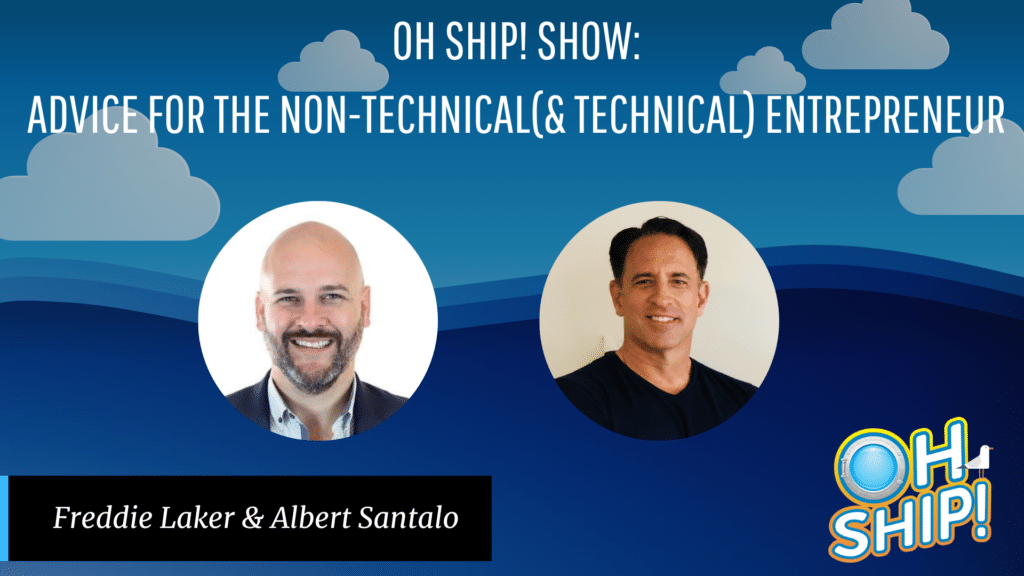Not a coding wizard but want to start a tech-empowered business? Albert shares sage advice in this week’s episode.
Albert Santalo is the founder of 8base, which makes starting a tech business easier for non-technical entrepreneurs. Having worked in the computer engineering field since age 18, he leverages decades of digital transformation expertise in this work. Back in 1997, he joined a group of partners to raise $20 million of venture capital to start a company called AnswerThink Consulting Group, which focused on management consulting to help large companies with IT strategy and digital transformation. In 2001, he started Avicena and later CareCloud, a healthcare IT company offering cloud-based solutions. We spoke with Albert about what non-tech-savvy entrepreneurs need to know when launching a tech-empowered business.
How should you choose an area to focus on?
When starting a business, Albert always chooses something that addresses a pain point he’s experiencing. That’s his personal style, and it’s generally a good recipe for how to begin, he says. “By definition, it means that you have some depth in the subject matter,” he says. “It brings you close enough to the problem that you can design a product and a company to fix the problem.”
8base solves a critical challenge for countless entrepreneurs in today’s world, which demands that everything be technology-enabled even though many business founders are not tech-savvy. “8base is a low-code development platform, which means it’s a toolset in a platform to help people accelerate the development of their digital products,” Albert explains.
What are the most common problems non-technical founders run into?
Albert commonly sees non-tech-savvy startup founders experiencing two key issues:
- Not building their product correctly, either in terms of what it does, how it’s built and coded, or personnel decisions related to those things. People decisions prove especially tough for a non-technical founder. Finding access to talent that results in a well-built product at an affordable cost poses a huge challenge for most. “The people who have done it before are generally gainfully employed or have a tremendous number of opportunities,” Albert says.
- Navigating the emotional challenges of the work. “People are emotional beings; startups are terrifying,” Albert says. “A lot of times they go into it with a vision of success that is supposed to happen a lot faster, and a lot better, and a lot of people lack the ability to persevere.”
What can give a non-technical founder the best possible start?
First, be certain you’ve found what you want to do for the next several years of your life. Then, research the space and put together a product prototype to validate with potential customers.
Taking a low-code approach to build an early prototype as quickly as possible can help provide proof of concept. “You always want to run as lean as possible, and you want to try to get proof that your idea is gonna work before you invest big,” Albert says. “Always try to figure out the minimum viable features, but do not skimp on architecture,” he advises.
Can you outsource your tech needs, or do you need a technical cofounder? It depends on the type of venture you’re launching. Ask yourself if you need a coder, a leader who can hire and manage the right people, or an architect. Look for someone who’s built many iterations of similar products so they can bring the necessary expertise to your venture.
What challenges occur when scaling?
The biggest challenge for a startup is that roles can scale up very quickly, and sometimes, those in core roles don’t have the skill set to make the leap. A tech person who brings you to success in the early stages doesn’t necessarily have the skill set to serve in a very senior role in a large organization. Being a pro at coding doesn’t translate into the ability to hire and lead a team.
“If there’s been a situation, I’ve lived it when it comes to this,” says Albert. “I’ve lived situations where cofounders weren’t pulling their weight; I’ve had situations where I’ve had early team members that gave their blood to make the company successful that just could not scale.” In other cases, he thought the person could scale, but board members didn’t agree.
Early on, most startups don’t have the resources to hire the best CTO talent. They’re working with a quarter million or less, and making those staffing leaps takes millions in investment. Thus, you need to choose wisely and have upfront conversations with candidates. “I’ve always tried to be very honest with people about the requirements of the job today and what it will take to do the job tomorrow, as best as I could see it,” Albert asserts. He tries to calibrate a person’s ambition and potential to grow when making hiring decisions at the early stages. Setting clear expectations can help avoid these problems.
He’s also learned to make personnel decisions more slowly and deliberately, even though speed usually feels critical in entrepreneurship. Avoiding turnover brings an abundance of time and money savings in the long run. If you’ve determined that someone is not the right fit, act quickly and treat them with dignity so you don’t burn bridges, Albert advises.
What do young entrepreneurs need to know?
“Entrepreneurship is not glamorous,” Albert says. “My belief is that entrepreneurship is primarily a heads-down, very emotionally challenging type of profession.” Don’t try to celebrate success too early, buying into a hyped-up idea of what running a startup should be like.
“The glory comes after you achieve the results you need to achieve,” Albert continues. Strive to remain humble, knowing others are depending on you.
In regard to fundraising, be wary of using SPACs to raise money, he urges. There’s a real danger of getting caught in a bubble, as a lot of the assets that are brought into the public sphere aren’t ready to become public companies. The SPAC route can help companies get where they’re going faster, but it does take away some of the guardrails. “If you’re an entrepreneur selling into them, you’re betting the farm, so it’s gotta work,” he says.
We hope Albert’s advice makes your road to success a little less rocky. Although the path is rife with challenges for non-technical entrepreneurs, making the right personnel decisions will be pivotal to achieving your goals!







